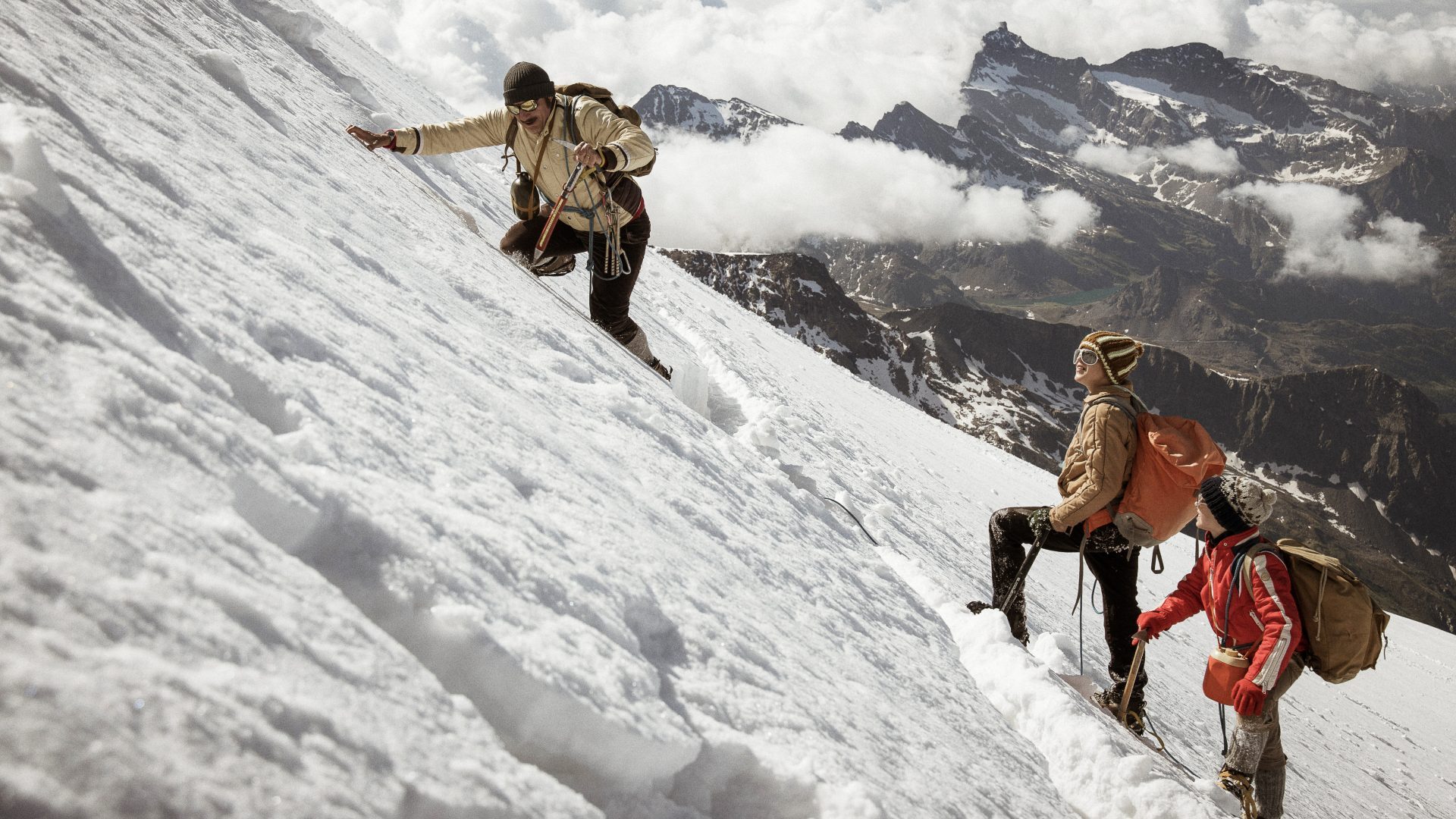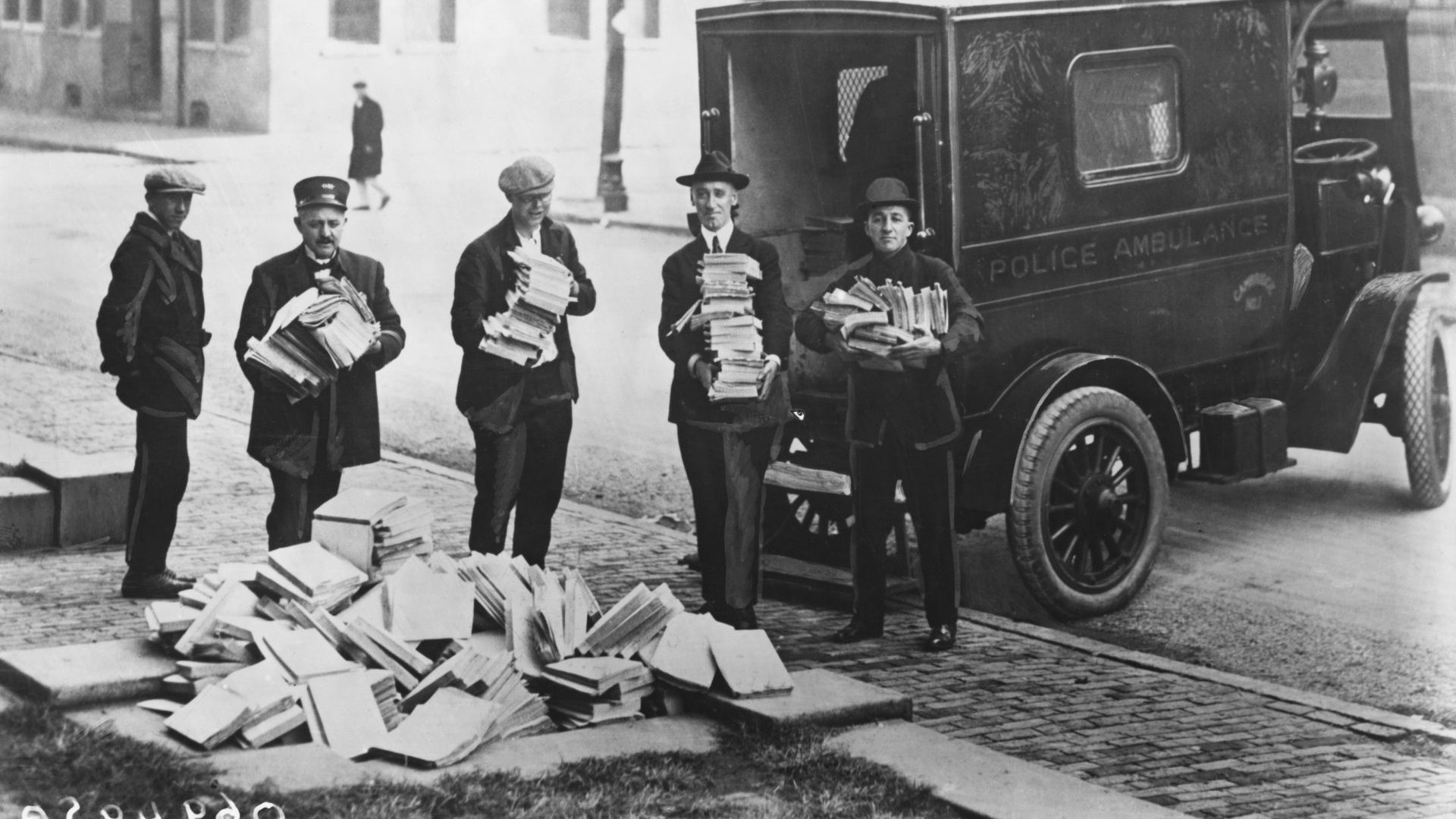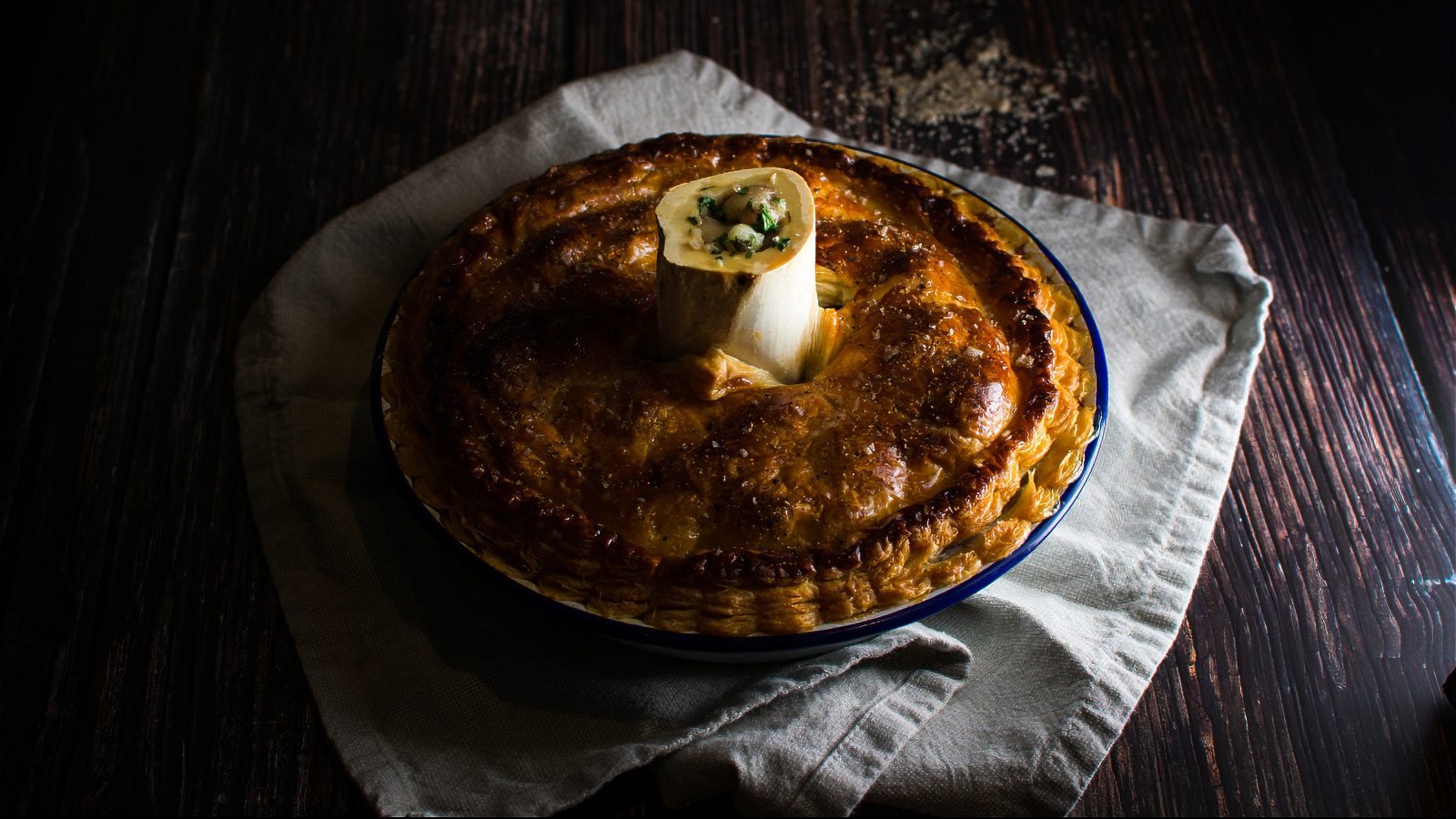High up in the Alpine air of the Aosta Valley, something beautiful and contemplative has grown. Movies like The Eight Mountains are rare, and all the more precious for it. I urge you to immerse yourself in its snows and rhythms.
“It was very hard to make a film where not much happens,” says Felix van Groeningen, one of its co-directors. “That was a challenge when you wonder where a film is meandering, in the middle, and not knowing where it’s going, because its characters are lost and wandering, too.”
But that’s not true, I protest. All life is here, surely, in the story of two childhood friends who grow apart only to reconnect, reflect and reconcile years later over the building of a remote mountain refuge. “Well, I’m glad you see it that way,” says Felix. “Film financiers and audiences, they don’t always get that.”
At least the Cannes jury last May did – you can rely on them for such things,
thankfully – and they gave it the festival’s Jury Prize, a sort of third place. And unless they are looking for car chases and explosions, any audience will find plenty here to thrill the senses.
Based on a novel by Paolo Cognetti, the film leaned heavily on the author, even shooting in the exact spots where he set the book and where Cognetti
continues to spend time alone amid the majesty of the mountains. Even the
film’s protagonists look like him, with thick beards and burning, intense eyes. For all the eternal beauty of nature, it’s also quite the hipster fantasy.
“We’re definitely in a moment and a movement,” agrees co-director Charlotte Vandermeersch. “It’s not why we made the film, but we’ve experienced such a wave of resonance with audiences who all want to escape and go and live in huts and make cheese. It’s all about getting back to a simple life, of course, and being more natural and organic. But of course, we wanted to show that this is just a romantic dream, too, and that the reality is very harsh.”
The Eight Mountains (Le Otto Montagne) is about Pietro and Bruno. When they first meet, it’s during the idyllic summer holidays, in the mid-1980s, when little Pietro and his family come to a hamlet called Grana (that’s its dialect name – in Italian, the real place is called Grenne) to get away from city life in Turin and where his taciturn father enjoys the challenge and solitude of mountain walks. I’m not quite sure what mum gets up to all day but there seems to be some renovation of their modest village house going on. To keep Pietro occupied, she introduces him to Bruno, whose family owns the nearby dairy farm and the two boys, the same age, hit it off immediately.
Pietro and Bruno (played in these bucolic early scenes by Lupo Barbiero and Cristiano Sassella) run free in the meadows and play in the streams – it’s a remarkably similar friendship to the one depicted in another prize-winning Belgian film from Cannes last year, Lukas Dhont’s Close, featuring two boys running through fields and experiencing a loving connection neither kid can fully understand.
Pietro’s father takes both kids on an expedition to a glacier, bonding with the more robust country boy Bruno while Pietro experiences a panic attack at a crevasse. It’s a metaphorical divide, too, representing the gap that will soon separate the lives of the boys.
However, they do reconnect much later, as adults, when Pietro’s father dies, leaving his somewhat aimless son with a legacy in the Grana mountains he wasn’t quite expecting but which will link Pietro and Bruno forever.
It’s a story of ambition and a search for personal happiness, of fathers and sons, as well as of simple pleasures and shifting perspective. There’s a gorgeous scene of the men sitting on a hill overlooking a sparkling mountain
lake, eating their lunch of salami, cheese and bread, and nothing could be finer than that moment.
“Actually, it was a really challenging shoot,” says Felix. “Just moving the camera to hike with all the equipment to get this shot, that was gruelling. And, my God, we ate nothing but ham and cheese for a year. Sometimes it’s
heaven but it can also be terrible.”
And that’s the film, specked with these glorious moments of tranquillity and idyll, but swirling with undercurrents of sadness and anger. When Pietro brings his city friends up from Turin to admire his new mountain retreat, they coo at the view and local wine and the artisan cheese. Bruno lurks and can’t resist grumpily telling them that their “nature” is not all it seems, that each element in it represents a challenge and a lifeline rather than a pretty detail on their idealised canvas.
Says Charlotte: “What we found is that mountain communities really struggle. It’s a tough business and financial skills are not always their strength. They all make great cheese but not all of them can find the posh
cheese shop in the city that will sell it for 30 euros a slab. Then there are the
European subsidies which are tricky to secure and there’s corruption and very quickly these businesses can be crushed, people get into terrible trouble, and they have no one to talk to about it.”
She explains that the child actor who plays the young Bruno in the film does
actually comes from a local “montanaro” family, with whom the filmmakers made friends and even tried to help out, but who continue to struggle even while the film rolls out to international success.
Adds Felix: “So you can’t just sit back and admire the view, you see. You have
to be thinking on the next shot, the weather that will change in an instant, and not to make everything too pretty because it’s all a lie. We need to show
the reality, but also what makes the heart soar.”
As adults, Pietro and Bruno are played, quite superbly, by Luca Marinelli and Alessandro Borghi, both leading the new generation of Italian screen stars quickly securing arthouse heartthrob status, with their brand of vulnerable masculinity. Marinelli prepared for his role by taking up mountain hiking in earnest for two months, so he could feel confident as an actor walking along the stunning ridges and rocky paths.
Some of the shots, frankly, made me feel giddy, so I can appreciate the tummy flutters an actor might get, atop a mountain peak or perched on the roof of a traditionally-built “refugio”. But, the directors tell me, it allowed the actors to find their fears and balance, to confront their masculinity with all its contradictions, strengths, pride and weaknesses.
That’s also the sweet spot for von Groeningen, who earned an Oscar nomination for Belgium’s The Broken Social Circle in 2013 and went on to
make the heart-breaking 2018 father/son drama Beautiful Boy, with Steve
Carell and Timothée Chalamet, about a music journalist’s battle to save his son from drug addiction.
“I found my connections to this material to be swift but very surprising,” he tells me. “But that’s the experience of everyone who sees it, we’re discovering. I think the environment and the characters seep into you.”
I’m talking to Felix and his partner of 15 years Charlotte (they have a son, Rufus, but are not married) from New York, where they have just released
the film. Even in that most urban of settings, they say, an audience immediately identifies with the urge to escape, the need for surrender and
acceptance, the search for solitude and a certain purity of life.
“It’s not so difficult to find untouched areas of our world,” he says. “There are still people in these places, who live and work, and there are cows and goats and life. It’s just different to the city. We’re only a couple of hours from Turin but we didn’t have to airbrush anything out – what you see is all real and still a way of modern life.”
Although the film differs from the Cognetti novel in some structural and narrative ways, the atmosphere prevails. That’s because Cognetti became their local guide, finding the right builders to design and construct the mountain hut, the secret paths and best views, even sourcing the mules we see bringing supplies and overseeing the Italian and dialect translations of a script that was originally written in the directors’ native Flemish.
Just to add to the European pot, the music is by Swedish artist Daniel Norgren, with songs taken from his albums Alabursy and The Green Stone.
Norgren lives and records in his house in the woods, working on lo-fi four-channel cassette equipment and using ambient sounds from field recordings and birdsong. The tunes feel just right, the sort of folky bluesy thing that works for the Aosta mountains and to which hipster crowds might listen in Dalston coffee shops.
The filmmakers say they tried to persuade Norgren to compose a soundtrack but he refused their advances and began to ignore their emails, so they simply used the existing tracks from his albums as temperature for the film and, not being able to countenance any other singer, then sent Norgren a nearly complete cut of their film.
“He suddenly got back to us saying he loved it and then began suggesting we use some songs he hadn’t released before, so we ended up with a mix of old and new material from him. He’s a very special artist, with this ethereal voice that’s both masculine and fragile.
I have to admit, I loved The Eight Mountains. It’s a superb European work, right up my valley – indeed, it’s set not far from where I went skiing, in the Monte Rosa region, in full view of the Matterhorn, or as the Italians proudly and insistently call it on their side, Cervino. But, as well as the vintage ski gear and mountain scenery, it’s that yin and yang of masculine existence that really gets you, the artist and the artisan, and the struggle to live an authentic life. It’s a slow, meditative film, for sure, but it rarely drifts aimlessly, and always feels like it’s building, maturing, deepening.
You do have time, within its rhythms, to contemplate your own existence, and indeed that’s the point of it, to make you confront and connect. I wonder, then, what its own directors took from it, apart from the need for warm clothing and waterproof boots?
“For me,” says Felix, “I’ve always had great anxiety about my films, that they’ll fail and I’ll never work again, but with this one, because of how it was made with all the weather challenges and having to keep going and coming back to it and waiting for the conditions, I realised I’ve overcome that. That’s the mountain I climbed – I just had to keep believing in it, to overcome, and to get to the other side. It’s only now I see it, but I love that and now I can recognise that this is exactly the philosophy of the book and the film.”
Charlotte, who is also a well-known actress in Belgium, takes a different perspective, a different route to the summit. “He climbs just one mountain as a filmmaker,” she says of her partner, with whom this is her first collaboration as official co-director. “Felix’s challenge is to make the movie. But me, I usually wander around not knowing what my next project will be, looking at many mountains. I like to act, to write, to sing, to perform, to create and tell stories. I’ll admit, deep down, I always felt I was rather aimless.
“But, after making this film, I’ve realised that I may go through valleys and mountains but that now I’m happy with my way, because I see that it is going somewhere and it does mean something after all. So that’s what I took from this, but also taught myself to endure and to believe in myself and to do whatever it is with conviction. And that way, happiness can come.”
The Eight Mountains is in UK cinemas from May 12
CANNES CONTENDERS
Cannes sets the tone for the cinematic year, from blockbusters to arthouse. Top Gun, Elvis, Aftersun, Triangle of Sadness (and yes, The Eight Mountains) all began life there last year and the 76th edition which begins next Tuesday, May 16, is looking just as tasty.
Indiana Jones and the Dial of Destiny will surely improve on Crystal Skull, the
tepid fourth in the fedora franchise, which premiered there 15 years ago.
But will Pixar’s Elemental, which closes proceedings on May 27, match up to
previous hits such as Up, which opened the show (the first animation ever to
do so) in 2009 or Inside Out in 2015?
Most eyes will be on Martin Scorsese’s Killers of the Flower Moon, about Native Americans murdered in 1920s Oklahoma. It stars the director’s male muses, Leonardo DiCaprio and Robert De Niro, as well as recent Oscar winner Brendan Fraser and Lily Gladstone. If you’re up for whimsy, there’s Wes Anderson with Asteroid City, set at a “junior stargazer convention” in 1950s Arizona.
Todd Haynes returns to the Croisette with Julianne Moore and Natalie
Portman in May December, while you have to be intrigued by Jude Law as
Henry VIII and Alicia Vikander as Katherine Parr in Firebrand, directed by
superb Brazilian artist Karim Aïnou. La Chimera looks tantalising, the latest
from Italy’s Alice Rohrwacher, whom Cannes has been championing for a while now (The Wonders, Happy as Lazzaro), this time with Josh O’Connor as an archaeologist in 1980s Tuscany and Isabella Rossellini as a retired diva.
I’m always partial to Japan’s Koreeda Hirokazu and the 2018 winner for Shoplifters is back with Monster, featuring the final score from the late musical maestro Ryuichi Sakamoto. Equally intriguing: Cate Blanchett as a renegade nun in 1940s Australia in The New Boy and a first film in 10 years from the always-challenging Jonathan Glazer. It’s called The Zone of Interest and is based on Martin Amis’ Auschwitz-set “unromantic love story”.
French contenders are opening both competitions. Romain Duris and Adèle Exarchopoulos in Le règne animal begin the Un Certain Regard section, while, on the opening day, May 16, Maïwenn’s possibly awful courtesan costumer Jeanne du Barry, with Johnny Depp speaking French as Louis XV, gets it all going. Someone will definitely lose their head. Only in Cannes…




